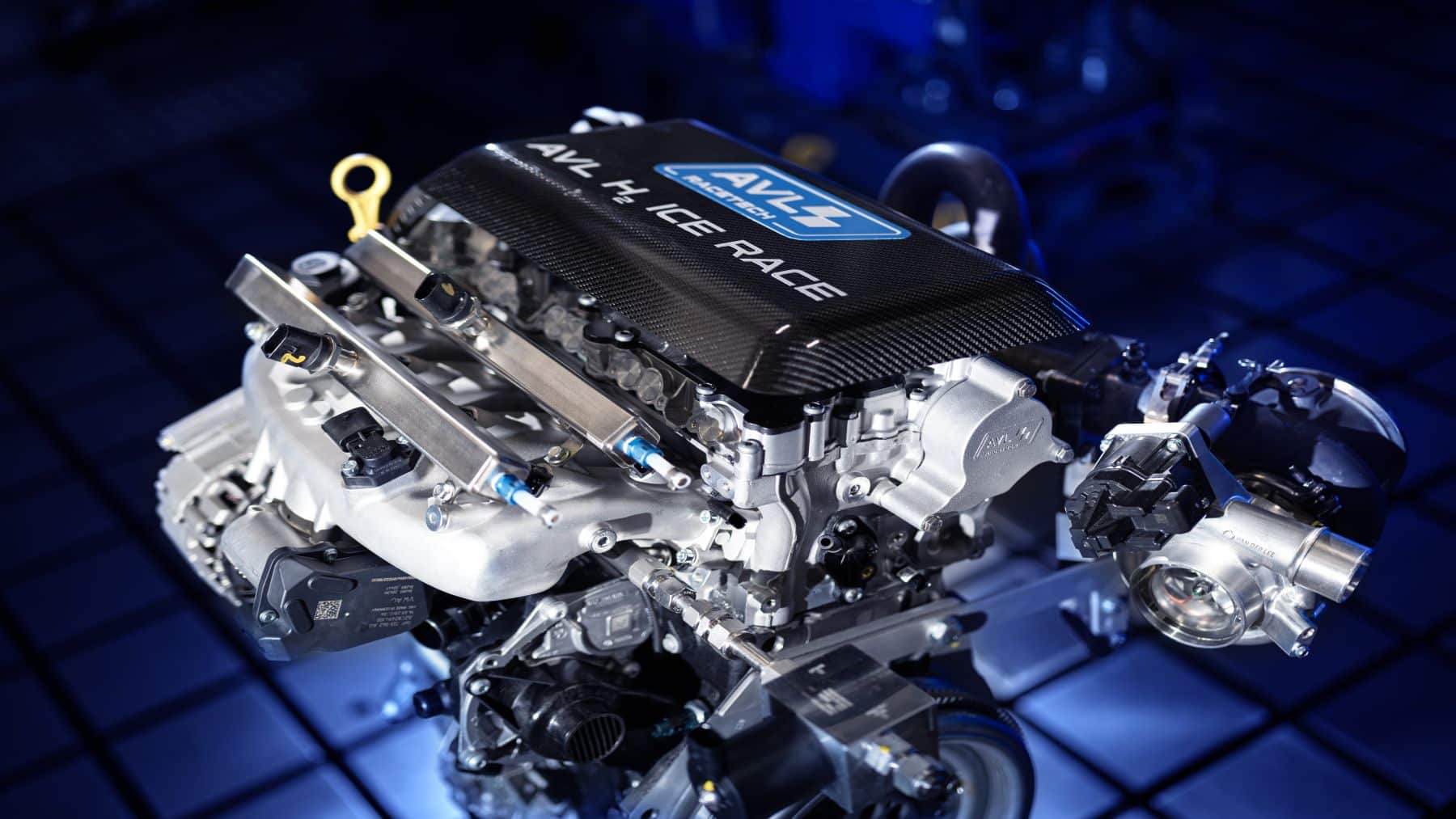The automotive industry awaits a tremendous transformation that is about to occur. The automotive world stands at a transformative moment because hydrogen engines that run on water-based fuel have entered, resulting in the end of EVs for the role of future green transportation. This article evaluates advanced power system technology by examining the evolution of the transportation sector.
Hydrogen engines in motorsports: A game-changer for high-performance vehicles
Research on hydrogen engine technology started multiple years ago, and recent innovations brought intense scientific interest that specifically benefited competition motorsports. The aerospace engine manufacturer AVL Racetech created its first 2.0-liter hydrogen combustion engine, introducing a modernizing change for industrial applications. A turbocharged powertrain delivers more than 400 horsepower, while an additional power boost occurs through a water injection system.
Engine development at AVL stands out because of its exceptional operational performance.
This engine operates with fuel mixture efficiency levels on par with racing engines despite being different from conventional hydrogen technology. Through the combination of water injection technology, the engine achieves higher performance pressure along with chamber cooling, which enables it to reach extreme motorsports competition level.
The hydrogen engine innovation from AVL depends on water injection systems that introduce water into the air intake. Water introduction during the process elevates, boosts pressure, and reduces chamber temperatures, improving performance and efficiency. This system permits improved power output from the engine because engineers carefully manage combustion reactions’ temperature and pressure. The application of water injection technology occurs specifically in hydrogen engines, whereas it traditionally led to its existence in motorsports.
The combination of water with hydrogen engines enhances both engine power capabilities and operational efficiency
The innovative system shows the potential to deliver more power than conventional internal combustion engines when running on hydrogen power, which proves that hydrogen technology offers both environmentally beneficial attributes and improved performance. Hydrogen fuel combined with water injection will create a powerful, environmentally friendly solution to replace gasoline-powered engines, thus enabling hydrogen engines to dominate motorsports and everyday transportation.
Hydrogen propulsion technology is a cleaner renewable power option than other automobile forms that utilize combustion engines and battery-operated electric systems. Hydrogen acts as a fuel that results in nothing else than water vapor emissions, thus establishing it as a zero-emission fuel technology. The power source of hydrogen engines stands opposite to gasoline and diesel engines since hydrogen eliminates air pollution and climate change modifications.
The hydrogen engine does not need unique earth metals like electric vehicle batteries. The decreased need for rare earth metals extraction from mining enables hydrogen engines to establish themselves as a sustainable transportation solution because they lower environmental impact.
Challenges ahead: Infrastructure and cost hurdles for hydrogen engines
Water-powered engines present multiple obstacles that prevent their widespread adoption. The main challenge hydrogen engines face is the nationwide non-existent hydrogen fuel network. A widespread network of hydrogen vehicle refueling stations requires substantial financial investments because they are currently difficult to find. The current production capacity of hydrogen fuel needs improvement to support the rising market requirements.
Another challenge is the cost. Current production costs for hydrogen engines, along with their supporting technology, exceed the prices of conventional internal combustion vehicles and electric models on the market at present. The expenses related to research and development in hydrogen technology will decrease as time passes, lowering the prices of hydrogen-powered vehicles for consumer markets.
Hydrogen engines that use water are a crucial turning point for sustainable vehicle transportation. Hydrogen engines demonstrate high-performance levels together with environmental advantages while having the potential to transform the automotive sector, thus making them an attractive electric vehicle alternative. Improved technology development and infrastructure expansion will make hydrogen engines the main power source for future transportation systems, whereby they will replace traditional fossil fuels with clean energy alternatives.














